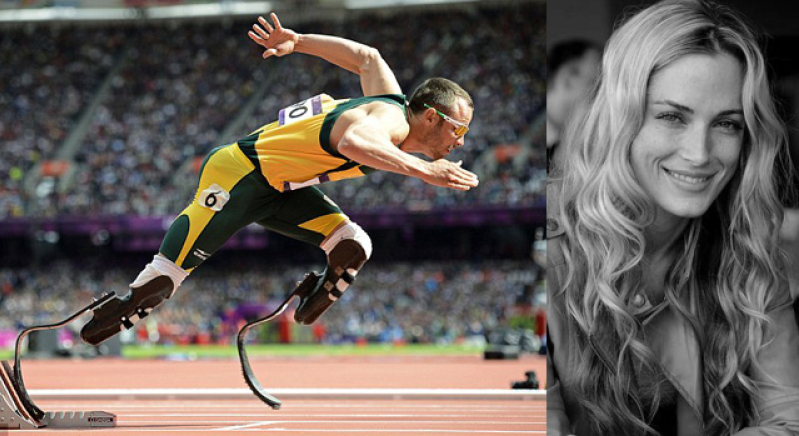
In comments made close to the second anniversary of Reva Steenkamp's death on Valentine's Day, the South African chief judge went on TV to defend decisions made by two lower-court judges in recent high-profile trials, including the one where Oscar Pistorius was convicted of culpable homicide.
According to a video posted by eNCA, the blade runner and Paralympian was convicted by Judge Thokozile Masipa. Athough Pistorius was acquitted of the murder of Steenkamp, Masipa faced criticism and death threats after making that decision; South Africa Chief Justice Mogoeng Mogoeng thought that sort of criticism crossed the line.
"I think it was vicious," Mogoeng said. "I think judges must be criticized. We expect them to be critical of us, but I think there is just a line that we shouldn't cross. We shouldn't be personal."
Mogoeng added that a decision like the one Masipa made "evokes our emotions" because people, most notably in South Africa, "expect a particular outcome and nothing else."
"But even when a proper analysis of the facts and the law leads a magistrate or a judge to a conclusion that is different to that which we expected, then we begin to suspect foul play," Mogoeng said. "We begin to suspect that there is something wrong with the judge."
eNCA reported that the country's most powerful judge also defended Cape Judge President John Hlophe's decision to marry a fellow judge serving at his court.
"Love is a very powerful force and I don't think any of us should seek to interfere with true love," Mogoeng said.
Controversy of the current Pistorius ruling aside, Fabien Goubet of Worldcrunch reported that Pistorius was involved in a different scenario back in 2008, although this one involved a case that went beyond the world of athletics.
"That year, in Lausanne, Switzerland, the Court of Arbitration for Sport ruled that Pistorius, nicknamed 'Blade Runner,' could participate in international competitions," Goubet wrote. "The decision overturned a ban previously issued by the International Association of Athletics Federations."
However, the decision to allow the Blade Runner to compete alongside regular athletes drew the ire of athletic executive bodies. According to Goubet, that's because they concluded that "his blades likely gave him an unfair advantage."
"Some might argue that prosthetics can actually turn amputation, such an obvious disability, into a decisive advantage. Maybe. Maybe not," Goubet wrote.
Goubet noted that although Pistorius may have running blades that allow him to compete in regular competitions, his experience had little to with the lives of ordinary amputees. Valentine Gourinat, a Ph.D. student in bioethics at the Universities of Strasbourg and Lusanne, elaborated on the differences.
"In the media, the amputee always has a young body," Gourinat said. "The person is glamorous, someone who was struck by a dramatic accident but will overcome the handicap thanks to technology."
Goubet reported that the "blades" Pistorius used in the athletic events cost "around $33,000." However, while prosthetic technology has advanced remarkably, not all regular amputees appreciated the efforts, according to French robotics engineer Nathanaël Jarrassé.
"I arrived with my big ideas, asking them if they'd be ready to accept prosthetics with targeted reinnervation, a brand new cutting-edge technology. Some of them laughed in my face," Jarrassé said. "I realized most of them didn't care about the high-tech aspect. What interests them is comfort, for example, having fewer irritations around the stump, things I never thought about before."
Gourinat stated that prosthetic technology should focus on regular people as well, not just Olympic athletes like Pistorius.
"Our entire imagination focuses on these extraordinary technologies, so much so that we're forgetting about amputees themselves," the Ph.D. student said. "We need to show reality as it is, and not only as we want to see it."






